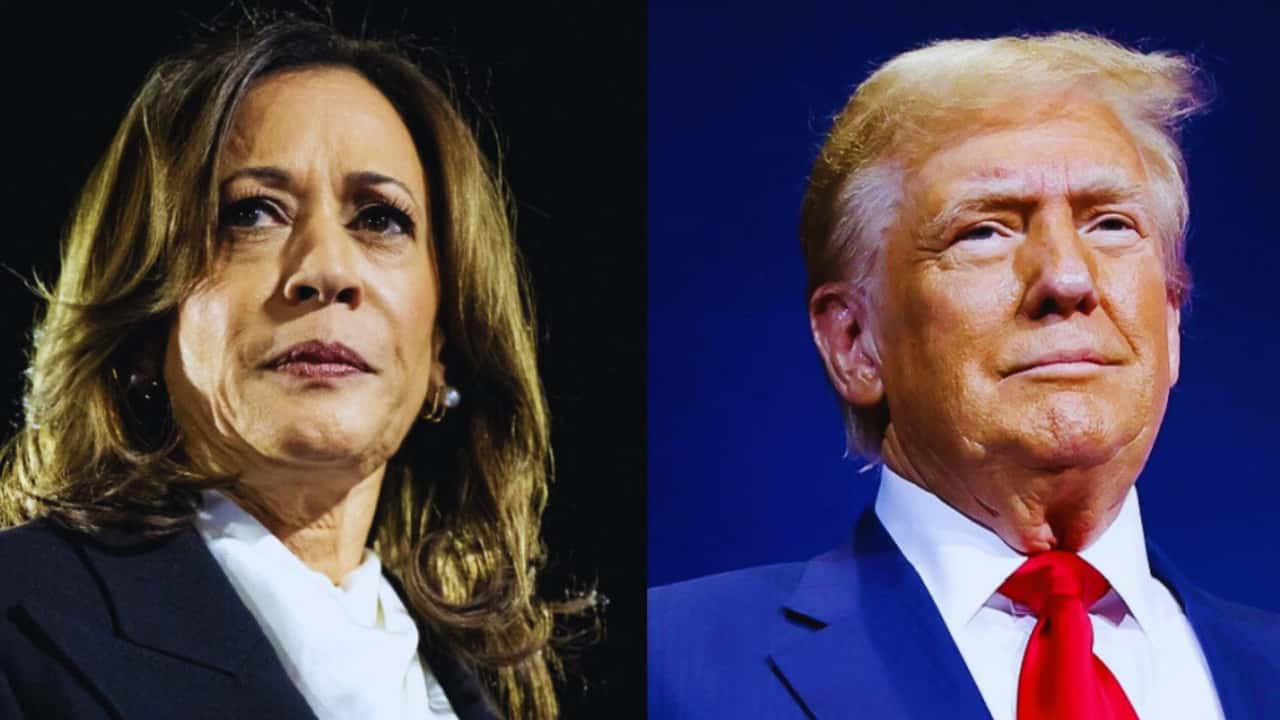Clash of Words and Values: Election Day 2024 Brings Historic Showdown
As a seasoned political reporter observing the conclusion of one of America’s most intense presidential contests, I provide you with the most recent updates from the campaign trail, where tensions have escalated significantly in the final hours before polls open nationwide.
Donald Trump took center stage at Michigan’s Van Andel Arena just after midnight, marking a dramatic end to his 2024 campaign with rhetoric that has both energized his base and sparked controversy.
The former president’s closing rally featured pointed attacks against his political opponents, particularly targeting prominent female leaders in ways that have intensified debate about gender dynamics in American politics.
The mood at Trump’s final rally was electric, with thousands of supporters filling the arena. In a moment that captured headlines, Trump nearly crossed a line in referring to Nancy Pelosi, stopping himself mid-word but leaving little doubt about his intended meaning.
The crowd’s reaction—completing the word he wouldn’t say—demonstrated the charged atmosphere that has characterized many of his campaign events.
JD Vance, Trump’s running mate, has emerged as a powerful amplifier of this confrontational style. During an Atlanta rally, he referred to Vice President Kamala Harris as “trash” who requires “taken out,” a description that has elicited sharp criticism from political observers across the spectrum. Bill Kristol, a longtime conservative critic of Trump, highlighted these remarks as emblematic of the campaign’s tone.
Despite concerns about alienating female voters, the Trump campaign has attempted to balance its aggressive rhetoric with strategic outreach to women.
Recent events prominently featured high-profile supporters like Governor Sarah Huckabee Sanders and former racing star Danica Patrick. Even Megyn Kelly, who famously clashed with Trump in 2016 over his comments about women, appeared at his Pittsburgh rally to offer support.
Meanwhile, Vice President Harris has taken a markedly different approach in her closing message. Rather than matching the confrontational tone, she has focused on what she calls “a fresh start” for America, emphasizing unity over division. Her campaign has portrayed Trump’s rhetoric as revealing a fundamental lack of respect for women’s autonomy and decision-making capabilities.
The stark contrast between the campaigns extends beyond rhetoric to their closing messages about America’s future. While Trump’s team has leaned into combative language and warnings about the stakes of defeat, Harris has emphasized hope and the possibility of moving beyond what she describes as “a decade of politics driven by fear and division.”
Campaign observers note that this election has brought unprecedented attention to gender dynamics in American politics. With Harris potentially becoming the first female president if elected, every gendered remark and attack takes on additional significance.
The response from women voters could prove decisive. Recent polls show a significant gender gap, with Trump’s team expressing private concerns about women’s support while publicly maintaining confidence in their strategy of bold, unfiltered messaging.
As Americans head to the polls today, they face not just a choice between candidates but between fundamentally different visions of political discourse and leadership. The outcome will likely send powerful signals about the kind of rhetoric and behavior voters are willing to accept from their leaders.
This historic election represents more than just a contest between political rivals—it’s become a referendum on the boundaries of acceptable political discourse and the role of gender in American leadership. The nation eagerly awaits the count of votes to determine the voters’ choice.
